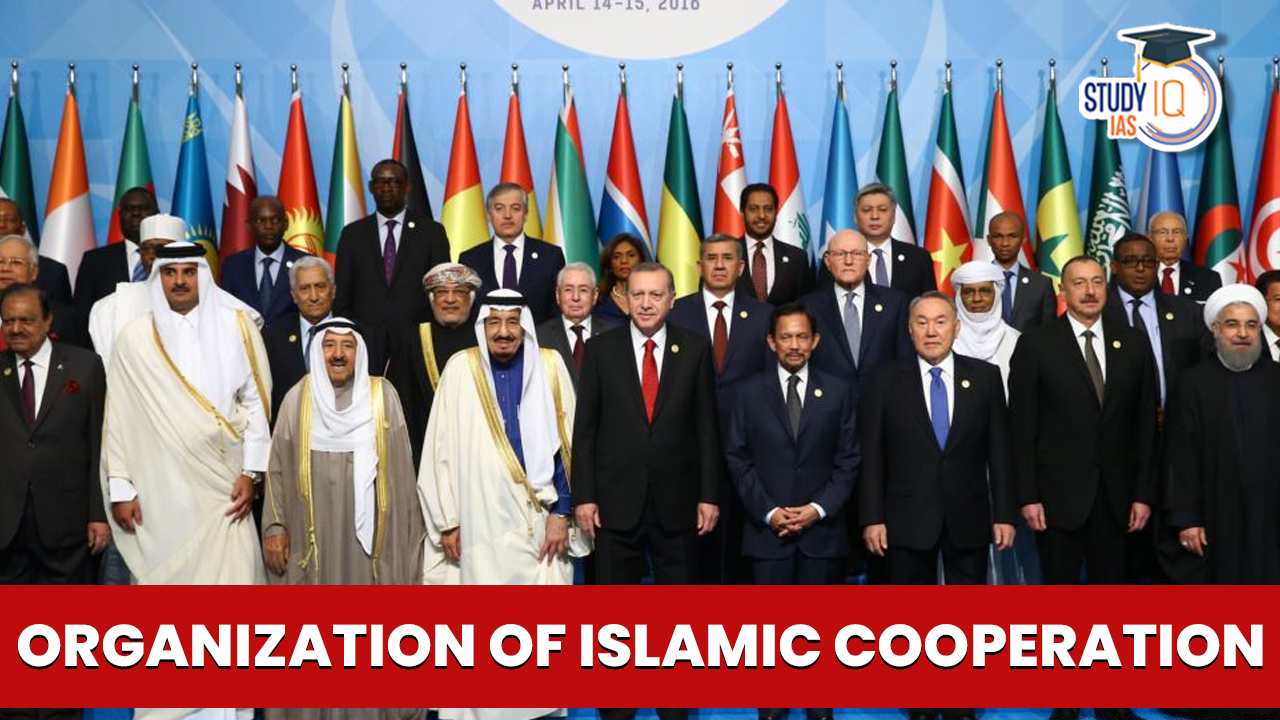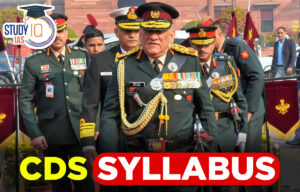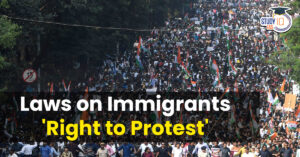Table of Contents
Organization of Islamic Cooperation: With a combined population of more than 1.8 billion, the Organization of Islamic Cooperation is the second-largest intergovernmental organization in the world after the United Nations. Across four continents, 57 states make up its membership. It strives to uphold Islamic principles, defend member states’ national sovereignty and independence, and promote world peace and security. The Organization of Islamic Cooperation serves as the voice of the Muslim world as a whole to protect and advance its interests in the political, social, and economic spheres.
Organization of Islamic Cooperation
As of 2015, the 57 member states of the Organisation of Islamic Cooperation had a combined population of more than 1.8 billion, with 53 of those governments having a majority of Muslims. The organisation was established internationally in 1969. According to the institution, it serves as “the collective voice of the Muslim world” and aims to “safeguard and protect the interests of the Muslim world in the spirit of promoting international peace and harmony”. Permanent representations of the Organisation of Islamic Cooperation (OIC) are present in the European Union and the United Nations. The OIC’s three official languages are Arabic, English, and French.
On September 25, 1969, a 24-member Islamic Conference led to the creation of the OIC. A fire at the Al-Aqsa Mosque in Jerusalem served as the conference’s initiator. In 1972, the OIC was formally established. The company’s main office is in Jeddah, Saudi Arabia. Over four continents, there are 57 members. Arabic, French, and English are its three official languages. There are approximately 1.81 million members.
The organisation was founded to uphold and defend the rights of Muslims around the world as well as to advance international harmony and peace among different nationalities. The OIC affirms its support for the people of the Turkish Cypriot state, Kosovo, Jammu & Kashmir, and other conflict-affected Muslim nations like Bosnia, Afghanistan, Iraq, and Syria. OIC has permanent representation at both the UN and the EU. There are several organisations and universities under the Organisation of Islamic Cooperation’s umbrella.
According to its charter, the OIC aims to preserve Islamic social and economic values; promote solidarity amongst member states; increase cooperation in social, economic, cultural, scientific, and political areas; uphold international peace and security; and advance education, particularly in the fields of science and technology.
Organization of Islamic Cooperation Members
The OIC currently has 56 members. Additionally, 56 of them work for the UN. A founding participant is Pakistan. Palestine is a member of both the OIC and the OIC (but not the UN). Despite having a sizable Muslim population, not all members are from Muslim-majority countries. (For instance, nations in West Africa and South America.
Observer states:
- Bosnia and Herzegovina
- Central African Republic
- Northern Cyprus (Turkish Cypriot State)
- Thailand
- Russia
Observer International Organizations:
- NAM
- UN
- League of Arab States
- African Union
- Economic Cooperation Organisation
Organization of Islamic Cooperation Objective
The OIC works to promote cooperation among its member nations.to advocate for the restoration of each member state’s full sovereignty and territorial integrity. The goal of the Organisation of Islamic Cooperation is to safeguard, defend, and oppose Islamophobia. OIC strives to ensure that member states take a unified stance in the U. N. General Assembly, Human Rights Council, and other international fora in order to stop growing dissension in Muslim societies.
Organization of Islamic Cooperation Charter
A charter is followed by the Organisation of Islamic Cooperation (OIC). The charter outlines the organization’s goals, guiding principles, and procedure.
- The current charter was approved in Dakar, Senegal, in March 2008.
- It affirms that all members must adhere to the admirable Islamic teachings and principles. The commitment to the aims and tenets of the U.N. charter is also mentioned.
- The charter promotes the restoration of the sovereignty and territorial integrity of any member state that is currently under occupation and aspires to foster unity among member states.The charter aspires to safeguard, defend, and fight against Islam’s defamation.
- It also tries to stop the escalating unrest in Muslim societies.
- The OIC’s decision-making procedure is outlined in the charter. According to the charter, the Council of Foreign Ministers is the principal decision-making body.The charter also stipulates that membership fees shall be used to support OIC.
Organization of Islamic Cooperation Function
- Membership: Members of the U. N. who are predominantly Muslim may join the group. The OIC Council of Foreign Ministers must approve the membership by unanimous vote. The same rules apply when obtaining observer status.
- Decision Making: Every decision made at the forum must be approved by a quorum, which is established by the presence of two-thirds of the member states. Decisions must be decided by a two-thirds majority of the members present and voting if a consensus cannot be obtained. The main decision-making body, the Council of Foreign Ministers, convenes once a year to decide how to carry out the broad policy of the OIC. They examine their progress, consider and approve programmes and their budgets, consider particular issues troubling member states, and advocate the creation of a new organ or committee. They also make judgements and resolutions on subjects of common interest.
- Finance: According to their national incomes, each member state contributes money to the OIC. When a member’s arrears equal or go over the sum of contributions due from them for the two years prior, their ability to vote is stopped. If the Council of Foreign Ministers is convinced that the member’s inability to cast a vote was brought on by circumstances beyond his or her control, then the member may only do so.
- Islamic Summit: It is the highest authority in the organisation and is made up of Kings and heads of state. Every three years, it meets to discuss, make policy choices, give advice on matters affecting the organisation, and take into account matters that member states are worried about.
- Council of Foreign Ministers: The Council of Foreign Ministers, the OIC’s primary decision-making body, meets once a year to deliberate how to implement the organization’s overarching strategy. They evaluate their progress, take into account and approve projects and their budgets, take into account specific problems plaguing member states, and promote the formation of new committees or organs. They also reach conclusions and adopt decisions regarding issues of shared interest.
- Standing Committees: Additionally, the OIC includes permanent committees for cooperation in industrial, commercial, scientific, and technological endeavours as well as for Jerusalem.
India’s relationship with Organization of Islamic Cooperation
India had been invited to the founding convention in Rabat in 1969 as the nation with the second-largest Muslim population in the world, but was humiliatingly expelled at Pakistan’s request. India refrained from joining for a variety of reasons, including: It did not want to join a group based on religion; There was a possibility that pressure would be used to improve bilateral ties with individual members of the organisation, particularly on matters like Kashmir.
Pakistan objected to Bangladesh’s request that India, where more than 10% of the world’s Muslims reside, be granted Observer status during the 45th session of the Foreign Ministers’ Summit in 2018. India has been confident in its ability to counter any remark made by the group after establishing close ties with influential members like the UAE and Saudi Arabia. India has often emphasised that J&K is “integral part of India and is a matter strictly internal to India” and that the OIC has no locus standi on the matter.
India made its first visit as a “guest of honour” at the OIC Foreign Ministers’ meeting in 2019. Particularly at a time of increased tensions with Pakistan following the Pulwama assault, this invitation was hailed as a diplomatic coup for India.
Organization of Islamic Cooperation Facts Related to UPSC
Here are some key facts and figures about the Organization of Islamic Cooperation for the UPSC Exam:
| Organization of Islamic Cooperation | |
| OIC full form | Organisation of Islamic Cooperation |
| OIC founded in | September 1969 |
| OIC member countries | 57 |
| OIC headquarters | Jeddah, Saudi Arabia |
| Type | Inter-governmental Organisation |
| OIC charter signed in | Sep-1969, 1st Islamic Summit |
| OIC Secretary General | Hissein Brahim Taha |
| Which country hosted the 15th Islamic Summit 2022? | Pakistan |
| Where was the first Islamic summit held? | Rabat, Morocco (25th-September, 1969). |


 CDS Syllabus 2025, Download Subject Wise...
CDS Syllabus 2025, Download Subject Wise...
 International Laws on Immigrants Right t...
International Laws on Immigrants Right t...
 SQUAD Grouping of USA, Key Members and I...
SQUAD Grouping of USA, Key Members and I...





















